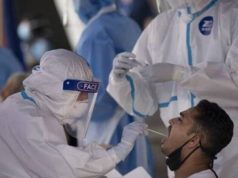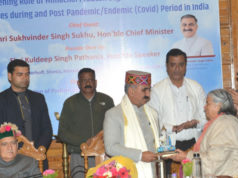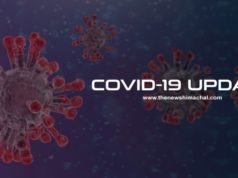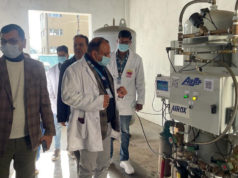New Delhi: The Drugs Controller General of India has approved the emergency use of DRDO developed ‘Drug 2-deoxy-D-glucose (2-DG)’ as an adjunct therapy in moderate to severe Covid-19 patients.
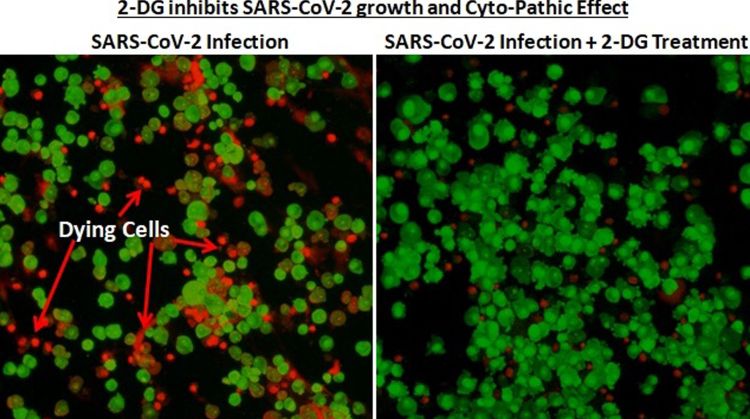
The Institute of Nuclear Medicine and Allied Sciences (INMAS), a lab of Defence Research and Development Organisation (DRDO), in collaboration with Dr Reddy’s Laboratories (DRL), Hyderabad has developed the drug.
“Clinical trial results have shown that this molecule helps in faster recovery of hospitalised patients and reduces supplemental oxygen dependence. A higher proportion of patients treated with 2-DG showed RT-PCR negative conversion in COVID patients. The drug will be of immense benefit to the people suffering from COVID-19,” official released said.
In April 2020, INMAS-DRDO scientists conducted laboratory experiments with the help of the Centre for Cellular and Molecular Biology (CCMB), Hyderabad and found that this molecule works effectively against the SARS-CoV-2 virus and inhibits viral growth.
In efficacy trends, the patients treated with 2-DG showed faster symptomatic cure than Standard of Care (SoC) on various endpoints. A significantly favourable trend (2.5 days difference) was seen in terms of the median time to achieving normalisation of specific vital signs parameters when compared to SoC.
DCGI conducted clinical trials in November 2020 on 220 patients between December 2020 to March 2021 at 27 COVID hospitals across the nation.
On May 01, 2021, DCGI granted permission for Emergency Use of this drug as adjunct therapy in moderate to severe COVID-19 patients. Being a generic molecule and analogue of glucose, it can be easily produced and made available in plenty in the country.
The drug comes in powder form in sachet, which is taken orally by dissolving it in water. It accumulates in the virus infected cells and prevents virus growth by stopping viral synthesis and energy production. Its selective accumulation in virally infected cells makes this drug unique.
In the ongoing second COVID-19 wave, a large number of patients are facing severe oxygen dependency and need hospitalisation. The drug is expected to save precious lives due to the mechanism of operation of the drug in infected cells. This also reduces the hospital stay of COVID-19 patients.





